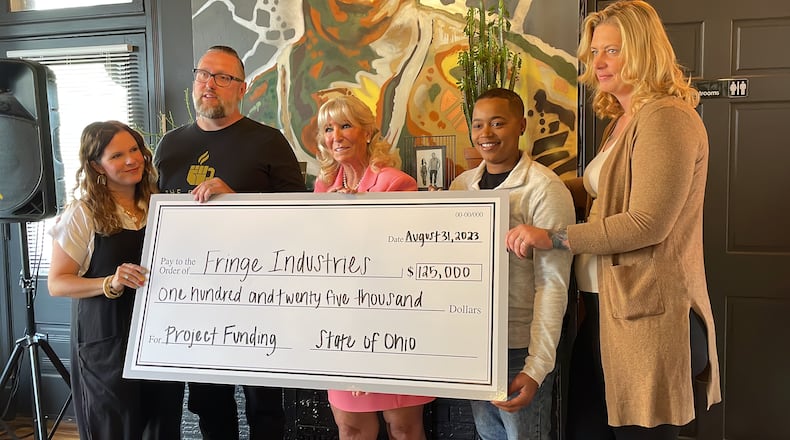Patrick Davis, a co-founder of Fringe Industries with his wife, Sarah Davis, said, “We hope that this is the first of many houses that we open.” He also said during Thursday morning’s presentation that Ohio is deficient in sober living housing, adding this would fulfill " a real need in the community.”
Fringe Industries is a non-profit agency that has multiple social enterprises, including the Fringe Coffee House, which is expected to reopen in early September after a lengthy board reorganization. The coffee house is a way to provide those leaving jails and prisons a chance to return to being productive citizens by giving them a job and, in some cases, working toward recovery to a healthy lifestyle.
“We believe people are more than the worst thing that they’ve ever done,” Davis said, adding he, too, had done things he was “ashamed of.” Davis, who had been incarcerated, said he knows those being released from incarceration will have difficulty finding a place to live and a place to work.
“All of us at Fringe Industries, we’re very passionate about being part of the solution instead of part of the problem,” he said, adding their second-chance employment opportunities are through their social enterprises, sober living apartments, and counseling and therapy. “Whatever it is that someone needs as they’re reintegrating into society. We want them to know they are more than the worst thing they’ve ever done, they’re not alone, and their tomorrow can be better than their past.”
Carruthers said she’s ready to help Fringe Industries, which is why she championed to get money in the state capital budget for this project.
“You’ve done tremendous things in this area, and you’re one of the historic investments in mental health I really feel passionate about,” she said. “The budget that supports this (sober living housing) also made historic investments in mental health. ... We wanted to expand those services. We know it’s getting worse every day, and we want to help these people.”
About the Author

